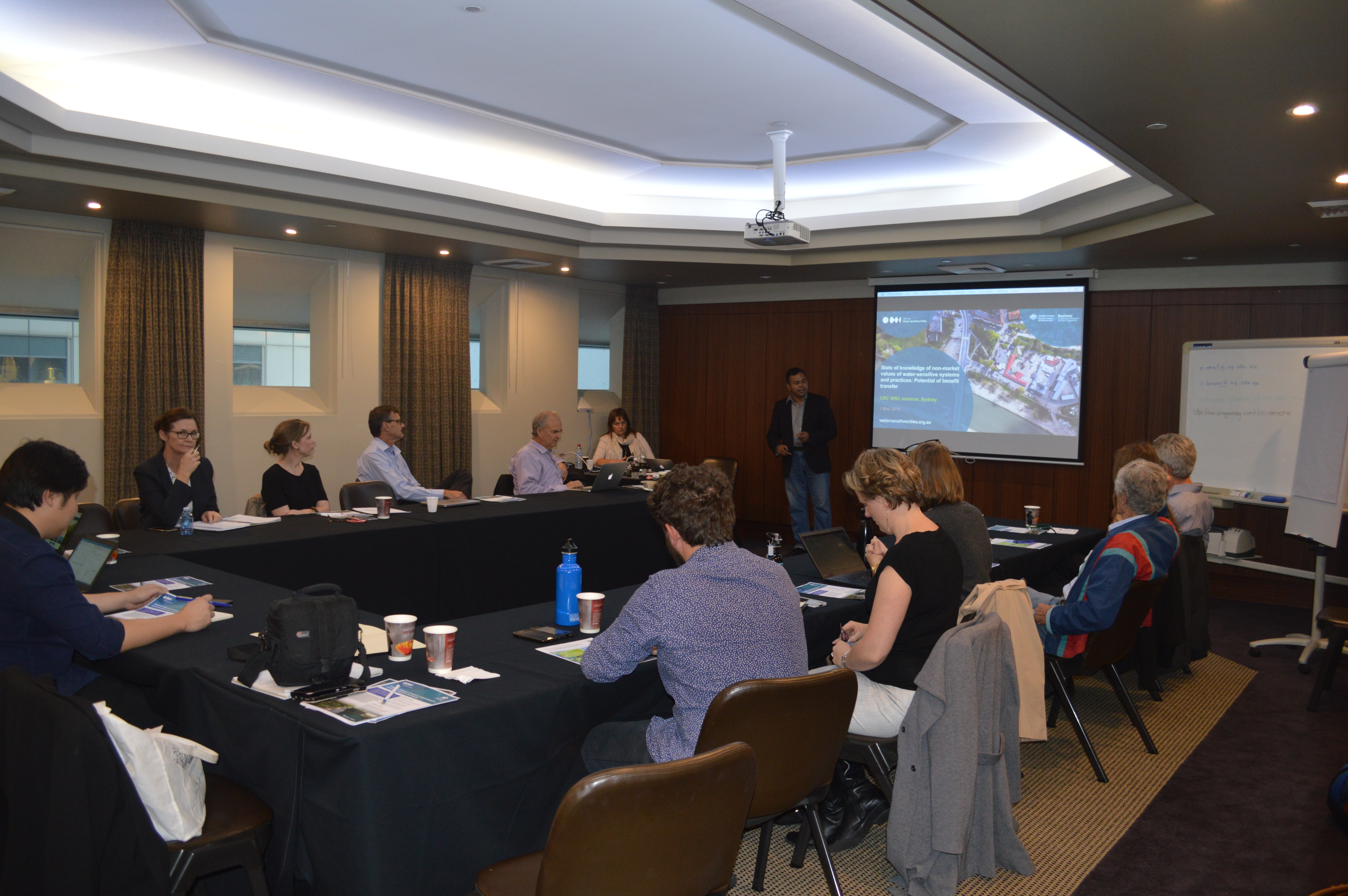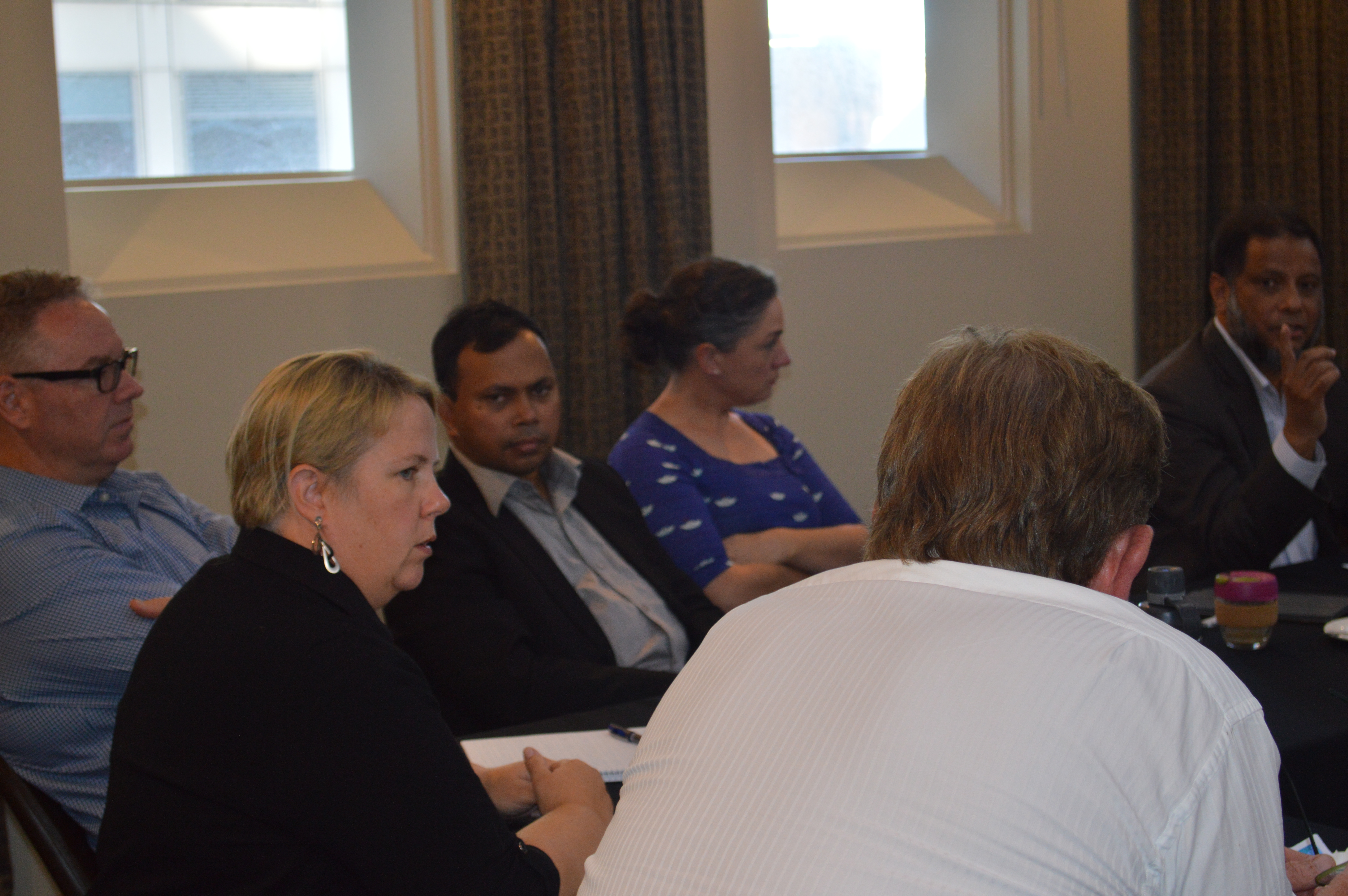Water practitioners learn about valuing the non-market benefits of water sensitive practice

Water sensitive systems and practice generate many indirect benefits, such as environmental and ecological services. But, it’s difficult to account for these services when making investment decisions, because they are not traded in markets and therefore hard to value. So, how do we value these non-market services?
The CRC for Water Sensitive Cities (CRCWSC) is helping answer this question, by creating a database of existing non-market values of water sensitive systems and practices, as well as a tool that can apply the valuations to new contexts. These tools are part of a wider economic evaluation framework the CRCWSC is developing (IRP2).
Dr Sayed Iftekhar (Project Leader) explained these two components of the Non-market value and benefit transfer tool work package and how they work, as part of a series of seminars in Melbourne, Sydney and Brisbane for CRCWSC Participants and non-Participants:
- The first component is a database of over 220 existing non-market values of water sensitive practices. It’s not always possible or appropriate to conduct original non-market valuation studies. So, the CRCWSC is developing a database that is both easy to use and simple to update, as new valuations become available. Dr Iftekhar presented some of the valuations from selected non-market valuations carried out by the CRCWSC at the workshop.
- The second is a benefit transfer tool, which allows water practitioners to take the existing valuations and apply them to new projects. Dr Iftekhar explained the different methods of transferring benefits (including meta analysis, function transfer and unit value (means) transfer). If conducted carefully, benefit transfer methods can reasonably approximate the value of benefits of a new project. This approach is much less costly than conducting an original study.
One of these seminars was a workshop in Sydney on 1 May 2018 organised by the Splash Program. Kristy Good—who coordinates the Splash Program and is the CRCWSC’s Regional Manager for New South Wales—explained why these economic evaluation tools are so important:
“With the growth in Sydney (and across Australia generally), one of the key challenges is demonstrating the benefits of designing and developing our cities with water sensitive elements. We need a way to value and justify to government, policy makers and financial regulators that there is value in building water sensitive cities, by considering non-market benefits such as population health impacts, waterway health and ecological improvements, and urban heat island mitigation.”

Feedback from workshop attendees focused on three main areas:
- First, attendees agreed that the database of existing benefits will be a significant help to practitioners when building business cases. Many of their questions focused on transferring benefits to other contexts—is this appropriate and how accurate is it? They used transferring benefits between different socioeconomic settings as an example of when difficulties may arise. In particular, attendees considered operationalising the database will involve training users about the values in the database, and some of assumptions behind them, and therefore their applicability in a given context.
- Second, attendees were interested in ensuring the benefit transfer tool could be used across different scales, not just small projects. In particular, the tool should be appropriate for large greenfield and urban development projects.
- Third, attendees were interested in when and how the database could be accessed. A draft version will be available to CRCWSC Participants later in the year, but many non-Participants were also interested in how they could access the database.
IRP 2 also includes other economic evaluation tools:
- a new benefit cost analysis tool
- an economic value of urban heat island mitigation
- finance models and policies.
You can find out more about IRP 2 by contacting Tammie Harold: tamara.harold@uwa.edu.au.
More about Splash Program
Splash Program is a capacity building organisation that helps cities and towns in New South Wales to become water sensitive cities. It serves to support the industry by influencing and advocating for the transition to water sensitive communities. It offers a range of services, including knowledge sharing, capacity building and networking opportunities.
The organisation’s values are reflected in its work and the way it services the industry:
Collaborate—We work with others to achieve our goals.
Purposeful—We drive towards an outcome in everything we do.
Resourceful—We make the most of everything we have and look for leveraging opportunities with others.
Leadership—We promote and demonstrate new ways of moving the industry forward.
Leading best practice—We promote and demonstrate technical excellence.